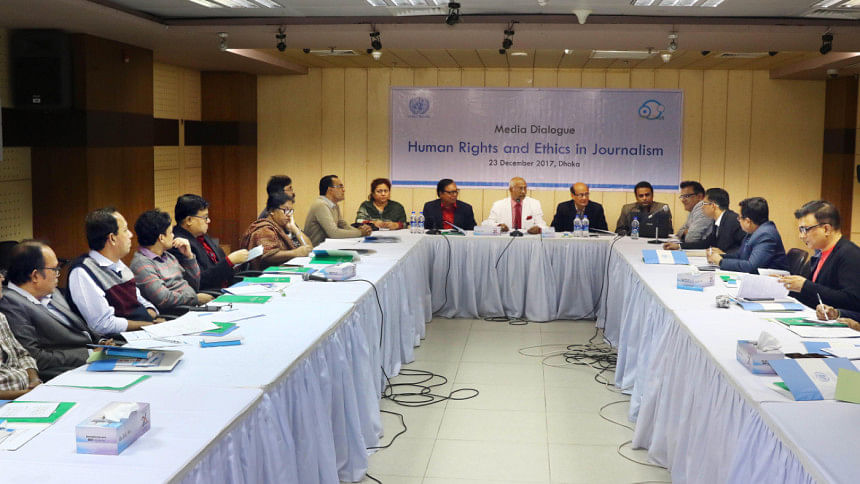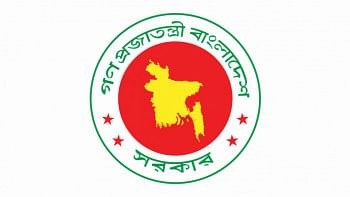Ethical journalism at crossroads in the age of online media

Journalists have to be more cautious about ethical practices to combat fake news amid free flow of information on social media and the rising number of internet-based sources including news portals, speakers told a discussion yesterday.
They said ethics was interwoven with journalistic responsibilities; checks and balances were required for good reporting and to stop reckless propaganda under the guise of journalism by news portals.
The Society for Media and Suitable Human-communication Techniques (Somashte) with the help of the United Nations Information Centre in Dhaka organised the programme on “Human Rights and Ethics in Journalism” at The Daily Star Centre. Senior journalists from print and electronic media took part in the discussion.
Addressing the programme, Chief Information Commissioner Prof M Golam Rahman said journalism was a profession of high moral standards and considered to be the “fourth pillar” of the state.
When the judiciary fails to ensure justice, mass people tend to seek remedy from journalism, he said, while moderating the discussion.
In no way is “adjustment and flexibility” allowed in journalistic practices, said Golam Rahman, a former professor of mass communication and journalism at Dhaka University
He stressed the need for framing ethical codes based on social norms and values, and considering local context in the process.
Presenting a paper on the topic, Somashte Director Mir Masrur Zaman said ethical slides occurred in journalism although there were initiatives like written policies by some media houses and legal measures taken by the state.
Stressing the need for a “solution-oriented” role from media, Reaz Ahmad, executive editor of United News Bangladesh (UNB), said journalists had to promptly fight those who were actively seeking to confuse the society through fake news.
Journalists have to counter propaganda with producing more quality and authentic news, he said.
Ajay Dasgupta, deputy editor of the Bangla daily Samakal, said journalism was still the “lighthouse” for the society amid different challenges.
He also highlighted the importance of training for journalists.
Prof Mofizur Rahman, chairman of the Department of Mass Communication and Journalism at DU, said uniform understanding of human rights was required for journalists to incorporate rights issues in their practice.
Nasimun Ara Haque Minu, president of Bangladesh Nari Sangbadik Kendra, urged the media to continuously play up the statistics of incidents of violence against women to properly show the gravity of the situation before the nation.
Saima Khan, country manager of UNAIDS, and M Moniruzzaman, national information officer of UN Information Centre in Dhaka, among others, spoke.

 For all latest news, follow The Daily Star's Google News channel.
For all latest news, follow The Daily Star's Google News channel. 



Comments